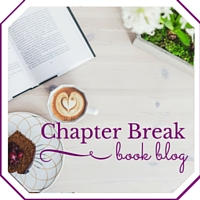Author Interview: Gaston Cox
- At what point did you decide to be an author and what was your path to publication?
For some people writing is ephemeral, in others it’s organic. The naturally skilled mesmerizes to states of vividness pulling the readers within the story’s complexity like a fast-moving current. I believe fabulists are chosen. Had someone walked up to me fifteen years ago and said: “Gaston, you will quit the legal profession, leave the United States and become a writer.”
I would think that person didn’t know what it meant to live the American dream. But here I am. It was my five years in the middle east that left its impression that inspired my writer’s path. It’s interesting how in one region of the world exploding shells and bangers are sounds used to ward off evil spirits and welcome prosperity to families and businesses, while in other parts of the world the same sounds carry the meaning of death and destruction. I believe, literature can change the course of humanity. Maybe a word, sentence or paragraph would make its journey from the pages and soften the hardest heart. Do you remember, “Just a spoonful of sugar…?” How about, “Hello, Clarice.” And “Bah! Humbug!” managed to subtly influence society.
When I think of self-publishing, three shells and pea come to mind. My first book was self-published to test the skepticisms that plagued the industry. But to my chagrin, the days of literary mores were beguiled by commercialism. Between the extremes of the freelance and paid per piece, there is a full service. If broken down into tiers, the full-service publishers would be tier two–behave like traditional publishing but don’t have the budget to nurture promising new artists. But at least there’s a faint sense of literary value. Three years with a full-service I caught a break and signed with a publishing house in China. One of my English novels was translated into Mandarin.
- Describe your writing process. Do you outline, plot and plan, or is your writing more organic?
An idea for a story comes over me like the theme music from that American game show Alex Trebek’s Jeopardy. I grab my standby pen and note pad. There’s a rush of information like women at a bridal gown sale. A coil slowly turns fervent like the switch on of an electric stove’s burner, it brightens revealing the story’s title, I quickly jot it down. Then I begin to write. The details of the story will not remain vivid until it branded within the paper fibers. Once I’ve written two or three pages, I pause and come back to it later. I know what you are thinking. Weird, right?
How many times we push aside our thoughts and, in our failure to act, we forget. Sometimes sporadic thoughts can hold a solution to problems or warn of an unforeseen event. I write what comes to mind. My approach to writing is like constructing a house. Mental rawness is the story’s foundation. I then go back and develop the characters, places, and timeframe. I never change the story’s foundation. I go back a third time and make changes to phrases or sentences that can be easily expressed in a single word. I do have outlines pinned to the walls of my study as a reminder of literary caveats.
- What has been the toughest criticism you have received as an author? What has been the best compliment?
“Gaston, the readers need to feel the heart of your characters.” I would say this statement is my toughest criticism. To develop the heart of characters in short stories is quite a challenge. Keeping in mind the immortal words of Oscar Wilde, “Whatever you write must be pertinent to the story’s ending.” Sometimes this is difficult without changing the raw. Take for example a rapper’s flow, it’s not written down. It’s not memorized just the top of his head. This is an example of “The mental raw.” The way it comes is the way I write it down. To change or cross out might be something that’s needed to spark the axiomatic within readers. I’ve been complimented on my use of diverse cultures and ethnicities in my stories. I draw from my previous travels to create scenes in the story; foreign cities, towns, villages, and customs.
- What are some books or authors that you would recommend to our readers?
This is one of those, it depends, questions. If you are a literary artist, I believe recommending writers’ work would skew artistic originality. To better your art, best you read Writer’s Digests magazine and take courses to perfect your craft. All books leave its subjective print upon the human psyche. The more you read other author’s work, the difficult it is to distinguish your identity. Although I’m fond of a few writers, I usually read their biography or what others have written about them. I had my share of must-reads in high school and the university, and some subtilities have influenced my writing. If you are fond of the classics as I am, labeled, “The four horsemen.” There’s Oscar Wilde’s flair with words he has style and swagger as with Thomas Wolfe. George Orwell reinforces literary semantics and the mastery of metaphors. Samuel Clemens takes the complexities of matters and simplifies into six words or less, this ability is a talent. Although she’s a woman and the fourth horsemen, Virginia Woolf, some people have a gift and call it a curse. Perhaps if better channeled Mrs. Woolf would have created a more colorful spectrum of characters, styles, and storylines for her readers.
- Is there anything you would like people to take away from your book?
All my books have a message to remind humanity about the consequences of excess. There are times when our social dilemmas are like a pendulum’s swing betwixt the flourished and the barren. Mankind’s fruitfulness is the blossoms within the veins of family and a foundation of his self-worth and ultimately his legacy. The barrens of poverty and the wilt of happiness lave over the impoverished like a rainstorm. Dreams and ambition turn bane, indignity wore like tattered rags thoughts of a better life, or an independent means turns perpetual because centuries-old moral dilemmas continue to be a struggle for modern society as though gyves to the heredities of repetition.
In the first story “Mariweathers,” Brent bared the shadow of poverty, growing up in a family where his father a coal miner, couldn’t afford the medical bill for his sick mother. In a time when wealth and modest means were quickly crumbling. Joining the military saved Brent from the grinds of poverty. The charities of government came to an end and time came for Brent to make his mark in society. The distress of his military experience took its toll. One day he went to a job interview and ran into a prominent family, Simpsons, at a local restaurant.
The Simpson’s lost their son in the war and took a liking to Brant. The integrity and power behind the Simpson’s name offered opportunities to Brent. His fortune changed when he met Agatha, a beautiful young girl from a wealthy family. They got married, but eventually, Brent loses his job and borrowed money to maintain his wife’s lavish lifestyle. He continued to cover up the truth about his impoverished life. What’s the message? What sacrifices are we prepared to make in the name of love. In Brent’s case, perhaps its self-love.
In the story “Whole,” man’s greatest threat is Racism. The author uses “Moby Dick” written by Herman Melville in a satire to show the insidiousness of racism. Jonas, the main character in the story, uncovers a disease that plagues his people and spread across the world. Jonas vowed to rid the world of its ailment that lodged itself within darkest corners of man’s heart he gives chase. He encounters numerous experiences including the dominance of racial qualities over the preservation of human life and the catastrophes instigated by the disease. Jonas finally faced the illness, racism, written in Shakespearean dialogue. The story focal point is the experiences Jonas encountered in his pursuits across the seas the formulation of nations during this period.
In the Story, “Rumor Has It,” A young priest, devoted to the Catholic Church, is accused of fathering a child out of wedlock and breaking the oath Priesthood. Although he broke the pledge, he wasn’t the child’s father. In his struggle with guilty feelings, he struggles with the decision of whether to confess his guilt. Albertus knowing the consequence and despite the act of dishonor to the clergy and shame upon the Adelina, the child’s mother clings to his faith to find an amicable solution. Albertus endure numerous trials and tribulations before the truth is finally revealed. Adelina died giving birth to the child and was the only witness that could ultimately clear Albertus. The story focal point is on the Priest’s struggles to maintain his innocence in the Catholic community. What is the message? We do things believing no one is watching, but karma catches us.
 Title: Life Cubed
Title: Life Cubed
Author: Gaston D. Cox
coming of age story.
fulfillment.
About the Author
Note: Some posts may contain affiliate links. Should you choose to purchase a product, we will receive a small commission for the sale at no additional cost to you. Chapter Break is a participant in the Amazon Services LLC Associates Program, an affiliate advertising program designed to provide a means for sites to earn advertising fees by advertising and linking to Amazon.com.


